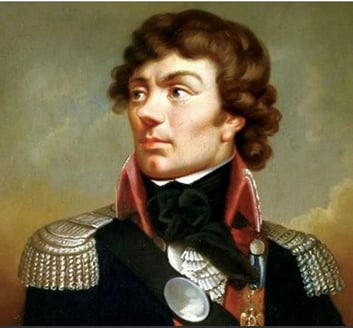
When we visited Krakow in Poland many years ago, our guide pointed out a monument to Thaddeus Kosciuszko.
I mentioned to the guide that there is a street named after Kosciuszko near my home in Whitehouse Station. She was surprised, but I don’t know why.
Kosciuszko came to the American colonies to take part in the revolution against Great Britain; he was one of the best engineers in the Continental Army.
He went back to Europe and led military resistance against attempts by Russia and Prussia to overrun their neighbors.
It would take hours to describe what Kosciuszko achieved and what he endured over 40 years of campaigning for human freedom.
Because of his passion for democracy and religious tolerance, he is the only person in human history to be a national hero in four different countries.
There are cities named after him in Mississippi and Texas; a county in Indiana; an island in Alaska; two bridges in New York and one in Connecticut; a park in East Chicago; a museum in Philadelphia; a mountain and a national park in Australia; numerous monuments and statues and uncounted streets, and a portrait in the lobby of the Polish-American Citizens Club about a mile from my house.
And yet, most Americans who remember him at all today remember him only as having something to do with the Revolution. This is not unusual. Even when we are familiar with the names of historic personalities and the events they affected, we rarely come to grips with the reality of them. Over time, a person like Kosciuszko becomes a lifeless icon and the events he took part in become abstract ideas rather than things that happened to a real human being.
And that’s true of the events described in the scriptures as much as it’s true of any other history. We are removed from these events by thousands of years. We have grown up to think of the Church in terms of the highly organized institution that is our immediate experience. We have grown up to think of the Church—at least in part—as the place we are obliged to visit each week.
But if we could re-create for ourselves the events that led up to the founding of the Church, our view might be different. The gospels tell us that people didn’t go to hear Jesus teach because they felt an obligation; he couldn’t keep them away.
In Mark’s Gospel, for instance we read recently that Jesus took his disciples to what he called an “out of the way” place, but people in great numbers followed him there. He and the apostles then took a boat to what Mark called “a deserted place,” but there, too, Jesus found a vast crowd.
This dynamic of people looking for the teaching of Jesus would continue after his death and resurrection and would affect not only Palestine but the world outside Palestine. The Church today doesn’t pretend to be anything other than it was in the first century—a gathering of people who wanted to hear what Jesus had to say and apply it to their own lives. The Church looks different than it did then, certainly. It uses different language and different rituals. But it is the same gathering of people to hear the same teaching.
The question for Christians today is, what happened to the enthusiasm, the passion, that caused people to hound Jesus to distraction; the enthusiasm, the passion, that made people in places like Greece and Turkey shed the traditions of their families and adopt the standards of a teacher they never heard or saw in the flesh?
We can’t go back to the first century to share the experiences of those first Christians. But we have an intellect, with which we can see past the size of the church building and the personalities of the clergy. We have an intellect with which to see the realities of the world around us and our own lives. And we have our faith, with which to weigh the world and our lives against what Jesus teaches, and to decide how eagerly we should rush to his side.
†††
Portrait of Thaddeus Kosciuszko by Karl Gottlieb Schweikart, 1772-1855, public domain.
Charles Paolino is managing editor at RENEW International and a permanent deacon of the Diocese of Metuchen.
This post was originally published in The Catholic Spirit, the newspaper of the Diocese of Metuchen,
